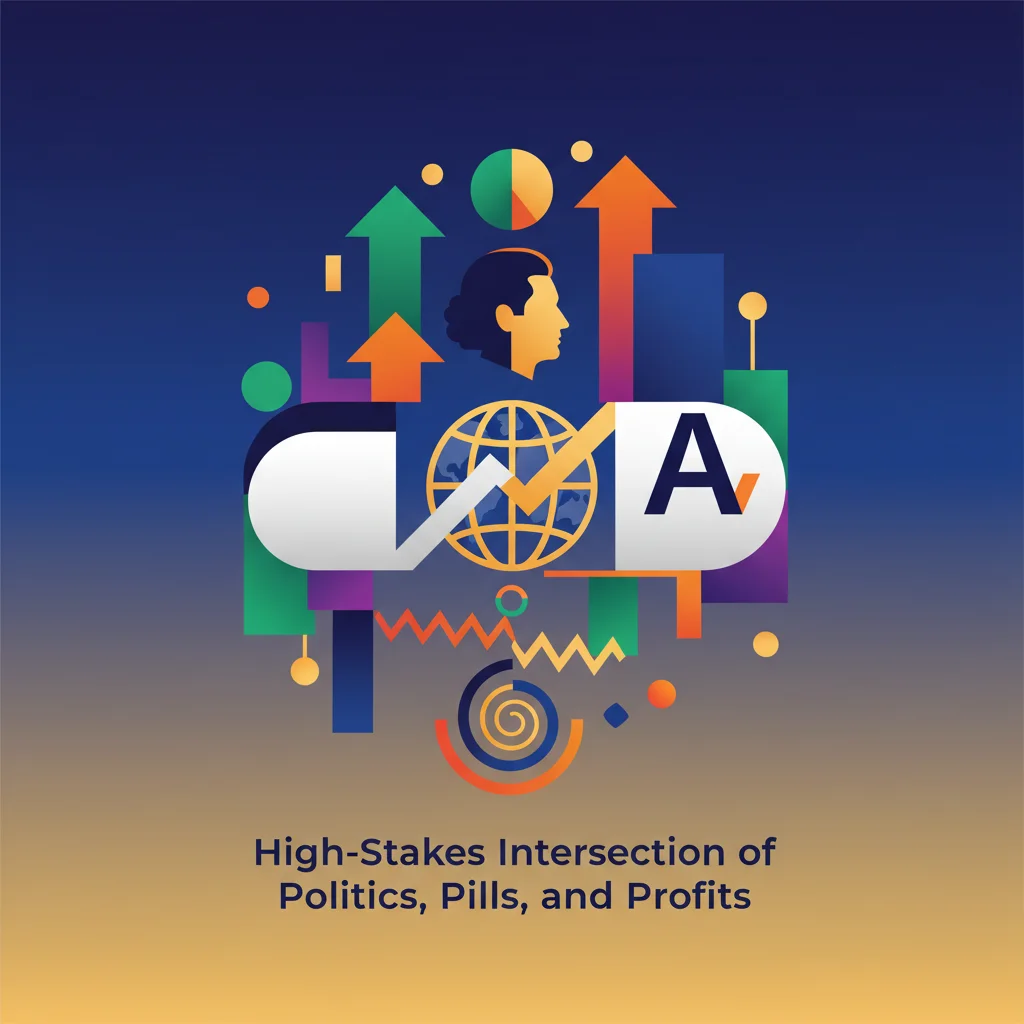
The Pharma-Political Gambit: How AstraZeneca’s Deal with Trump Rewrote the Rules of Healthcare Economics
The High-Stakes Intersection of Politics, Pills, and Profits
In the world of high-stakes corporate strategy, few moves are as audacious as those that play out on the global political stage. For investors and business leaders, these moments are more than just headlines; they are critical case studies in risk management, negotiation, and value creation. A prime example of this complex dance emerged when pharmaceutical giant AstraZeneca, led by CEO Pascal Soriot, struck a remarkable deal with the Trump administration. In a move that sent ripples through the stock market, the company agreed to lower drug costs in the United States in exchange for a crucial reprieve from import tariffs.
Soriot lauded the agreement as “a big win” for US patients, a statement that at once positioned the company as a patient-centric ally while masterfully navigating a perilous geopolitical landscape. But beneath this public relations victory lies a fascinating story of economic pragmatism and strategic foresight. This deal wasn’t just about one company or one president; it was a microcosm of the immense pressures facing the global pharmaceutical industry, the complexities of modern supply chains, and the ever-present tension between corporate finance and public health. For anyone involved in finance, investing, or global economics, understanding the mechanics and implications of this deal is essential.
Deconstructing the Deal: Tariffs as a Bargaining Chip
To fully grasp the significance of AstraZeneca’s move, one must first understand the environment in which it was made. The Trump administration’s “America First” policy had ushered in an era of aggressive trade negotiations, often using tariffs as a primary lever. The pharmaceutical industry, with its sprawling and intricate global supply chains, was particularly vulnerable. A significant percentage of the active pharmaceutical ingredients (APIs)—the core components of modern medicines—are manufactured in countries like China and India. New tariffs threatened to dramatically increase the cost of bringing these essential ingredients into the United States, squeezing profit margins and potentially disrupting the supply of life-saving drugs.
AstraZeneca found itself directly in the crosshairs. Faced with the prospect of absorbing millions in new costs, the company’s leadership saw an opportunity to turn a threat into a strategic advantage. The proposal was elegant in its simplicity: AstraZeneca would voluntarily reduce prices on certain key medicines for American consumers, a politically popular move. In return, the administration would grant the company an exemption from the looming tariffs. This wasn’t merely a cost-saving measure; it was a sophisticated piece of corporate diplomacy that addressed a key political priority for the administration—high drug prices—while securing the company’s financial stability. According to a report from the American Action Forum, tariffs on Chinese pharmaceutical inputs could have cost the industry billions, a cost that would ultimately be passed on to consumers or absorbed by shareholders.
This strategic pivot highlights a crucial lesson for modern business leaders: in an increasingly protectionist global economy, regulatory and political risks are as significant as market risks. Proactive engagement, rather than reactive compliance, can unlock unforeseen value.
An Investor’s Calculus: Weighing the Financial Trade-Offs
For those engaged in investing and trading, the immediate question was clear: What did this mean for AstraZeneca’s stock (AZN) and the broader pharmaceutical sector? At first glance, the deal presents a classic financial


